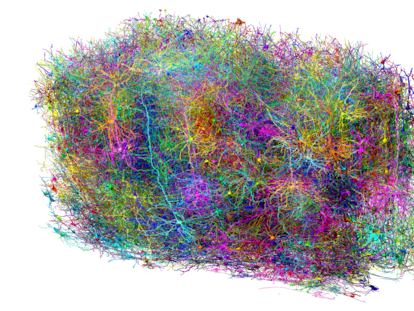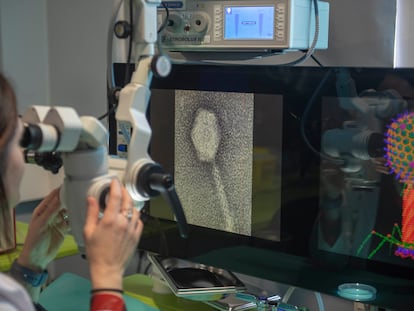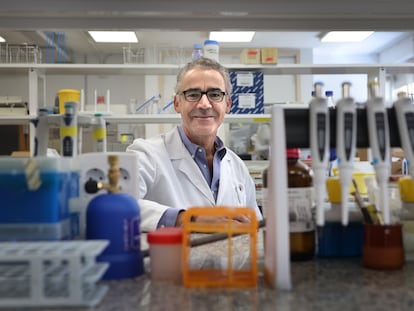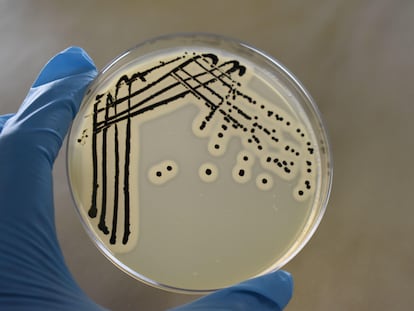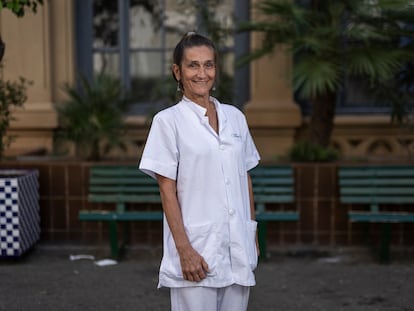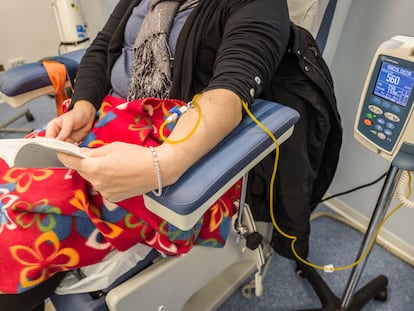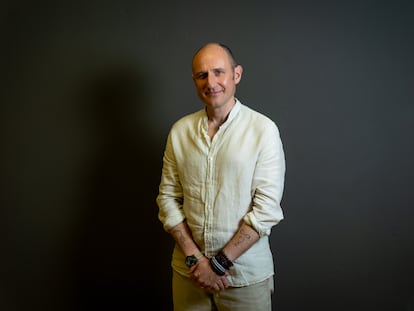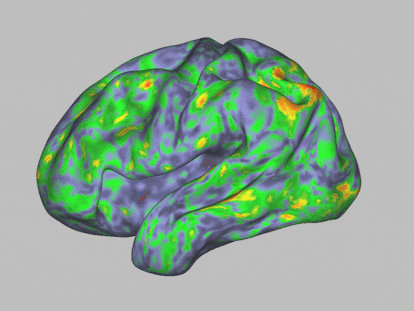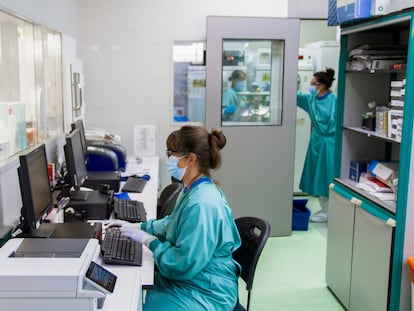A study describes the psychological disorder that lies behind the uncontrollable impulse to steal: it is very little studied and surrounded by a layer of stigma that complicates diagnosis
Information gathered in just one cubic millimeter of a rodent’s cerebral cortex will help unravel the complex neural networks behind cognition
A scientific review confirms that poor sleep alters the metabolism of many cells, such as neurons, in a similar way to what is observed in some neurodegenerative diseases
A scientific review explores the gender gap in life satisfaction and finds that, despite socioeconomic advances in equality, women are experiencing more emotional distress compared to men
On the front lines of cancer research for 40 years, this expert believes liquid biopsies will change the way patients are treated and their prognosis
An autoimmune disease crippled his lungs. Hooked up to a machine that oxygenated his blood for him, for 18 months the boy made the hospital his home and relearned to walk in the corridors of the intensive care unit
A group of specialists emphasizes the urgent need for in-depth studies into vaginal microorganisms and their impact on health: ‘More research is needed’
The writer has published ‘Magic Pill,’ a book where based on his own experience with weight-loss drugs he embarks on a journey about the impact of these revolutionary treatments
Thousands of treated patients support the potential of phage therapy, but limited knowledge of this technique and its regulatory complexity hinder its expansion
Two independent studies reveal that disease progression is delayed by combining two targeted therapies with the traditional approach that cuts off tumor nutrition pathways
A satirical article looks at the dangers faced by characters such as Cinderella, Snow White and Belle, a list that includes loneliness, rabies and alopecia
Research reports that in the United States, the number of patients who underwent bariatric procedure decreased by 25%, while the number of patients prescribed the new drugs increased by 123%
Research in mice describes a molecular mechanism in fatty tissue that predisposes people to regain weight. This finding could help explain the ‘yo-yo effect’
Research suggests that the ecosystem of microbes in the gut may be a reservoir of resistant genes that jump from one bacteria to another
Methicillin-resistant Staphylococcus aureus, which causes 120,000 deaths a year, adopts an alternative mode of cell division to ensure its survival, new study finds
The specialist from Hospital Clínic Barcelona oversaw the creation of ‘Ets una exagerada’, a collaborative book that unravels the biases caused in the health field by androcentric approaches to medicine
An effective therapeutic treatment to neutralize or prevent colds has not yet been found. For now, there is only solid evidence for drugs and lifestyle recommendations despite some support for saline nasal drops
These substances can mimic the actions of the body’s natural hormones and negatively impact health. To date, over 2,000 have been identified
Intense or chronic consumption of the beverages, above all in kids and teens, can cause damage to the cardiovascular system and mental health
Oncologists are perturbed by the increase in early-onset tumors and the potential role of lifestyle, though this may not explain the entire phenomenon
A new study reveals that almost half of patients with metastatic melanoma treated with these drugs were cancer-free 10 years later
The scientist argues that obesity is the result of an evolutionary mismatch between brain programming and our social context
So-called ‘magic mushrooms’ contain psilocybin, a hallucinogenic substance that has therapeutic potential in the field of psychiatry. It alters a brain network involved in introspective thinking, leading us to daydream and remember
A scientific review of existing literature reveals the biases and poor quality of some research that claims a few glasses of wine are good for your health
A scientific review unravels the characteristics shared by many of the exceptional patients whose infection remains under control — and who may be able to light the way to a cure
A new study has found a possible explanation for why nursing mothers maintain robust bone mass despite calcium loss. The discovery, in the laboratory, opens the door to treatments against osteoporosis
A group of British researchers describe the evolution of ‘Pseudomonas aeruginosa’ over the last 200 years to the point where it took advantage of an immunological defect to make patients with cystic fibrosis sick

